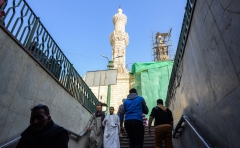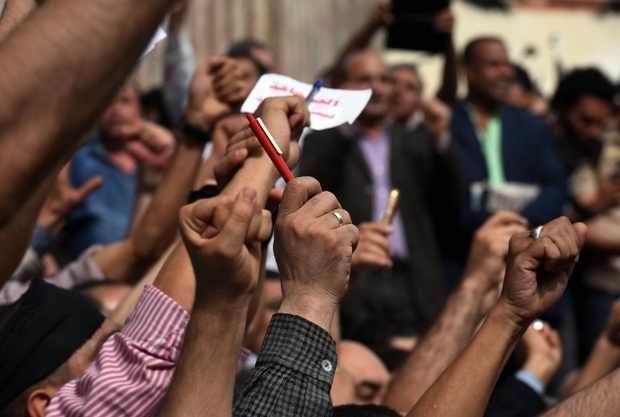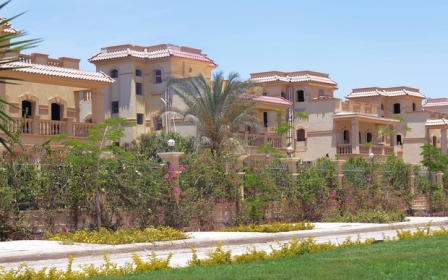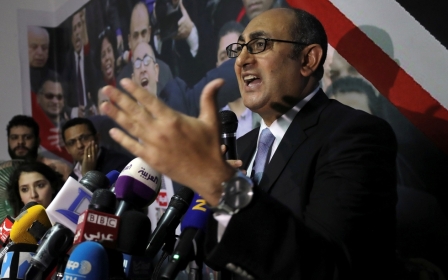Write correctly or go to jail: Egypt's Arabic-language law sparks debate

Egypt's parliament is considering a proposal for preserving the Arabic language that has caused an outcry on social media and in parliament with critics arguing it would violate basic freedoms.
The draft law, proposed by the Academy of the Arabic Language in Cairo, could lead to journalists up to EGP 200,000 ($11,000) or imprisoned for up to six months if they use colloquial language instead of formal Arabic in their published materials.
The proposal requires formal Arabic to be used in virtually all aspects of Egyptian life, including in government business, in education and on street signs and art installations, and for colloquial and foreign words to be avoided.
The motion, due to be discussed in parliament this month, further obliges political leaders, politicians, teachers, preachers and television anchors to speak in formal Arabic language. It also stipulates that if the use of a foreign language in formal documents is unavoidable, an Arabic translation should be provided.
Press freedoms
The bill details that media outlets in Egypt will need to hire a state-approved language editor and suppress publications in vernacular Arabic and that violators will be punished with fines and prison sentences. Critics fear that it could be used to shut down freedom of speech.
The motion could be in breach of the Egyptian constitution, which guarantees free speech as long as it doesn't incite violence or hatred or discriminate against certain people, journalists and parliamentarians have said.
“The proposal violates basic human rights by calling for journalists to be fined or imprisoned for using colloquial Arabic,” wrote Egyptian journalist Ahmed Sherif in Youm al-Sabi’.
'The proposal violates basic human rights by calling for journalists to be fined or imprisoned for using colloquial Arabic'
- Ahmed Sherif, Egyptian journalist
Mohamed Fouad, a parliamentary member from the al-Wafd party agreed, calling the draft law the work of the “thought police” and pointed out that sanctions were not a solution.
“Priorities must be set to protect the Arabic language, mainly by teaching and talking to students in proper Arabic,” he told Al-Monitor.
Others believe that unless the wider population is on board with these changes, they are unlikely to succeed.
Despite agreeing that preserving standard Arabic is very valuable, Samir feels that the colloquial dialect is more suited for communicating ideas in various fields including theatre and some types of journalism.
"Preserving classical Arabic is very important for cultural and literary identity. It also ensures that all Arabs can continue to communicate despite the differences in their dialects," said Samir.
"But the role of a language is to convey ideas. Imposing such a law is useless, however, and can definitely be used for the wrong reasons."
'The very people who will be discussing this law in parliament can't speak in formal Arabic'
- Mohamed Taha, Egyptian Journalists' Syndicate
Mahmoud Kamel, a member of the Journalists' Syndicate's board and rapporteur for its cultural and technical committee, described the proposal as “catastrophic”, reported al-Monitor.
Kamel noted that the use of local vernaculars in journalism is nothing new and that if the draft law had been enforced previously, important figures in journalism and literature would have been jailed and the world would not have known about their work.
The academy which drafted the motion was founded in the 1930s to monitor the Arabic language and has since published an annual report documenting violations. In 2008 it was given powers to impose sanctions on violators and from 2016 its reports were considered binding.
The academy has since attempted to address the media’s “tendency to use slang and foreign words” but stated that it didn't want to "use the sword of law in the face of this recklessness in classical Arabic".
Yet according to the draft law violators can expect to receive prison sentences for up to six months and face hefty fines.
Hassan al-Shafei, who has spearheaded the proposal at the academy, said the aim was to encourage journalists to work with the government to revive the use of formal Arabic, and not to penalise them.
“We are not after criminalising journalists whatsoever. We hope to work together to preserve the language and encourage its use in a proper fashion,” Shafei told MEE.
“The penalties are there to help people to realise the gravity of the issue. Without a penalty – which should only be monetary or disciplinary – the law would not be taken seriously."
Is fusha dying out in Egypt?
The debate over the Arabic language dates back to the last century when Arabs began to discuss ways of protecting classical Arabic, known as fusha, from facing a destiny similar to that of Latin.
Many have argued for preserving the Arabic language because to them it is symbolic of religious and national identities.
The draft law has sparked a fierce debate in Egypt, but a similar law was passed in Jordan in 2015 with little resistance.
'The penalties are there to help people to realise the gravity of the issue. Without a penalty, the law would not be taken seriously'
- Hassan al-Shafei, Academy of the Arabic Language, Cairo
The 2015 law which aimed at preserving the Arabic language in Jordan spelled out that Arabic be used as “the language of talks, negotiations, memorandums and correspondence with other governments and international institutions, organisations and bodies”. The law which will be fully enforced from 2018 stipulates that no teacher or instructor shall be employed by an educational institution without passing an Arabic proficiency test.
According to pan-Arab journalist Mohammad Ayesh the reason behind this divergence is the different nature of the Arabic language and journalism in Egypt.
“There is a distinct school of thought among Egyptian journalists which doesn’t exist in other Arab countries,” Ayesh told MEE.
“Many Egyptian journalists believe in using simple language to convey ideas and therefore accept the use of colloquial Arabic, whereas in countries such as Jordan, Iraq and Syria, journalists are preoccupied with preserving formal Arabic and maintain a proper use of the language in their work,” he added.
Ayesh believes this has led to many Egyptian journalists having a substandard grip on formal Arabic, which is a huge departure from a time when Cairo was considered a hub for the language’s heritage and tradition.
Furthermore, others believe that the weakness of the Arabic language in Egypt will make it unlikely the proposal will pass.
“I don’t think this draft law will pass because no one will be able to actually abide by it,” Mohamed Taha, a member of the Journalists' Syndicate, told MEE.
Taha said formal Arabic standards should first be improved in schools and across the educational system. He added that street Arabic is used even in parliament.
“The very people who will be discussing this law in parliament can't speak in formal Arabic," he said.
This article is available in French on Middle East Eye French edition.
New MEE newsletter: Jerusalem Dispatch
Sign up to get the latest insights and analysis on Israel-Palestine, alongside Turkey Unpacked and other MEE newsletters
Middle East Eye delivers independent and unrivalled coverage and analysis of the Middle East, North Africa and beyond. To learn more about republishing this content and the associated fees, please fill out this form. More about MEE can be found here.







